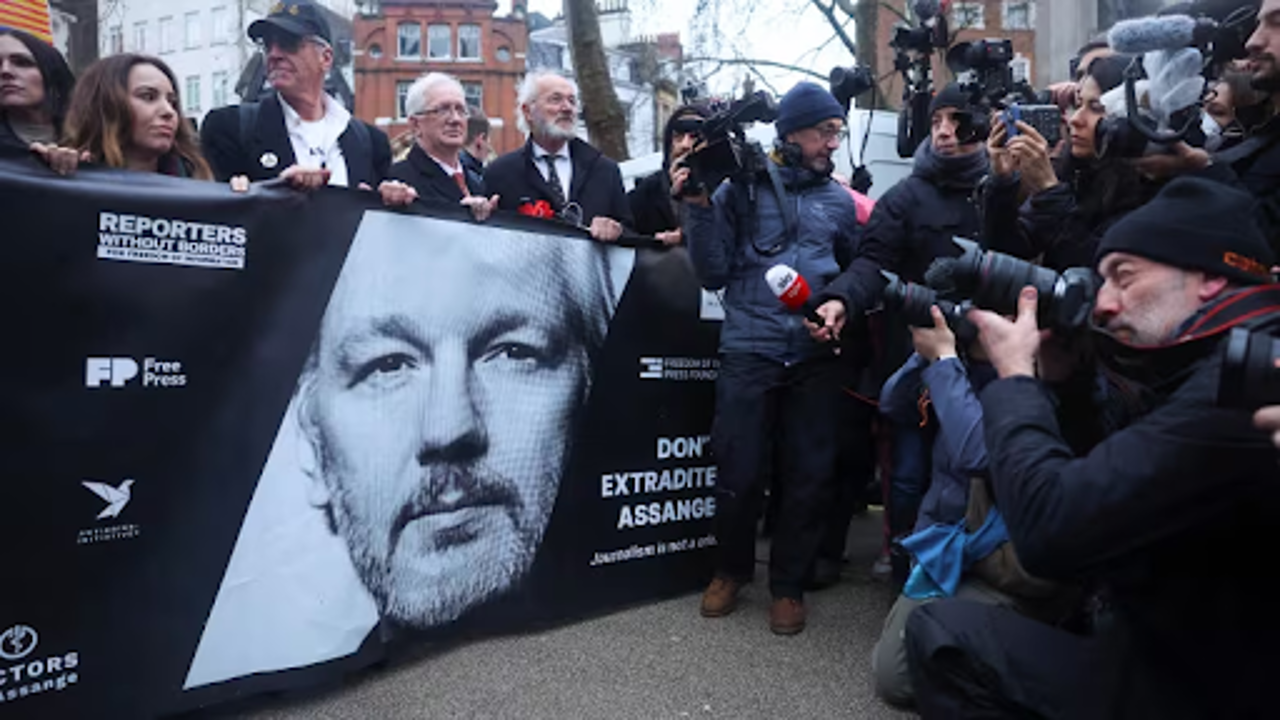
Supporters march from the High Court to Downing Street in London as Assange appeals against extradition to the United States on February 21. (Photo: Toby Melville/Reuters)
Julian Assange, founder of WikiLeaks, has agreed to plead guilty to a felony charge as part of a deal with the U.S. Justice Department, marking a dramatic end to a complex legal saga. This case, spanning continents, revolves around the publication of classified documents. After enduring years of confinement, Assange left a British prison and departed the UK for the first time in years. He anticipates reuniting with his family, ending a chapter fueled by global advocacy and legal battles.
Assange's guilty plea, pending court approval, centers on an Espionage Act charge related to obtaining and disseminating classified national defense information. This resolution concludes the U.S. government's prolonged pursuit of Assange, viewed variably as a journalist exposing military misconduct and a threat to national security. His popular secret-sharing site made him a symbol of press freedom, but legal challenges persisted, leading to his sanctuary in the Ecuadorian embassy and subsequent UK imprisonment.
The plea agreement stipulates that Assange will return to Australia after sentencing, effectively acknowledging guilt while avoiding further incarceration beyond the five years spent in a UK prison. The plea hearing, set in the Mariana Islands due to logistical reasons and Assange's objections to U.S. travel, represents a compromise amidst extradition disputes.
Assange's journey attracted worldwide attention, portraying him as both a hero and a controversial figure. He gained fame for revealing military atrocities but faced allegations and legal battles, including extradition threats from the U.S. His legal team recently secured an appeal against extradition based on concerns over free speech protections.
Critics accused Assange of reckless publishing and aiding adversaries, contrasting with supporters who defend him as a whistleblower and advocate for transparency. The case underscores the complex intersection of journalism, national security, and digital age challenges.
In summary, Julian Assange, WikiLeaks founder, has agreed to plead guilty to a U.S. felony charge after years of legal battles, marking the end of an international saga. His case, balancing press freedom with national security concerns, has captivated global attention and divided opinions worldwide.















